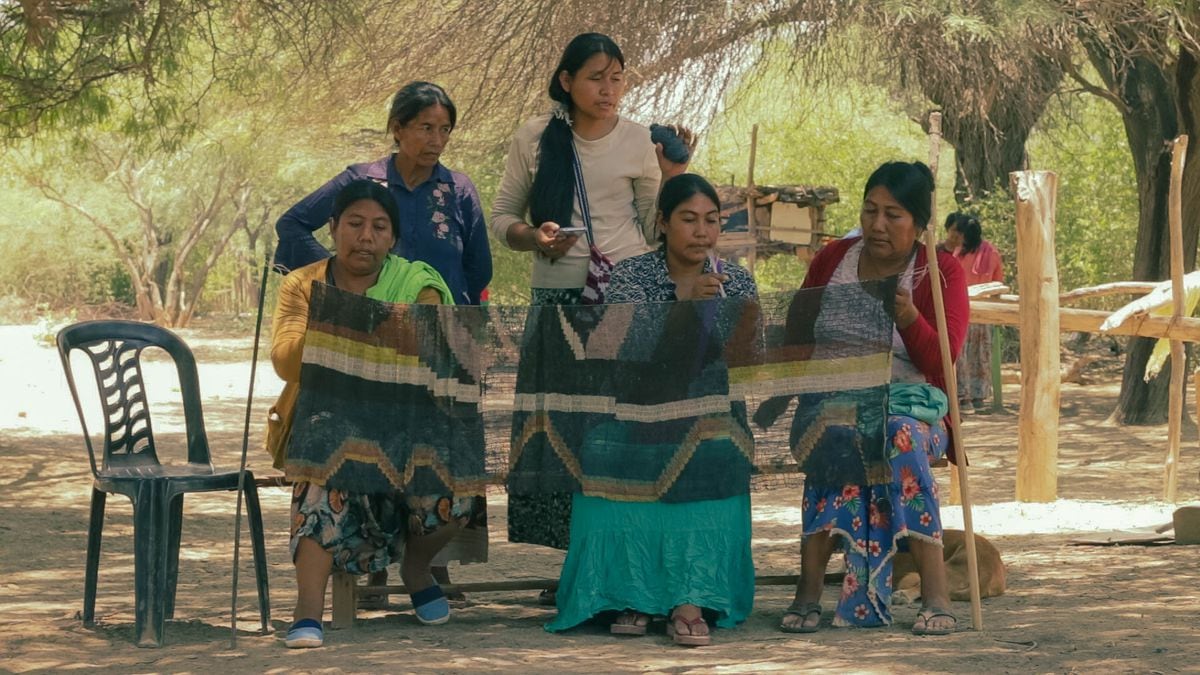Daniel Alarcón, writer and radio producer Kelsey Ganser / MacArthur Foundation
Almost 15 years ago, after publishing his first novel (
Radio Ciudad Perdida
), the writer Daniel Alarcón was invited to a television program in Miami to present his book in Spanish.
When he arrived at the studio, he discovered that he was going to share the space with a woman who gave away puppies to adopt, a man dressed in orange who presented himself as “the second most popular cumbiambero in Nicaragua” and a Cuban astrologer who wore a glass crucifix. and responded live to calls from viewers.
"I would love to find that clip to see my astonished face at such a scene," Alarcón told his Radio Ambulante team last week, "I thought it was wonderful."
More information
The thousand stories of Latin America sound here: Radio Ambulante turns ten
Now his face is also astonished, but at times it goes from perplexity to nervous laughter.
“I'm a bit overwhelmed,” says Alarcón (Lima, 44 years old), who has become part of a catalog more overwhelming than the one in the Miami program: the winners of the MacArthur Foundation scholarship, popularly known as
Genius
, which each year decides to award $ 650,000 to between 20 and 30 people who have shown "extraordinary originality and dedication in their creative pursuits."
An award that has been received by the composer Lin-Manuel Miranda, the novelist Chimamanda Ngozi Adichie, the essayist Susan Sontag and writers such as David Foster Wallace and Cormac McCarthy, to mention just a couple of names from an impressive list that encompasses artists, scientists, thinkers. and creators of a very wide spectrum.
The MacArthur Scholarship is one of the most prestigious awards in the United States and its characteristics make it a kind of mythological animal. There is no way to openly apply or compete for it: candidates to receive it are proposed by an anonymous jury, are evaluated by an anonymous selection committee and are submitted without any conditions. More than an award, the organization considers it an investment in a person's potential. A kind of "keep it up, keep it up: we've seen what you're doing and we want you to keep doing it." And the only thing anyone can do to aspire to receive it is, literally, keep working on their own. Once, when they had to face financial problems, Alarcón and his wife, the Colombian journalist and entrepreneur Carolina Guerrero,they had joked about the 'Genius' scholarship as an unlikely solution: “How are we going to pay for the children's schools and car repair? Easy, my love: look, I win the MacArthur and that's it, "said Daniel. They laughed and went on with their lives.
In its official announcement, the MacArthur Foundation recognizes all facets of Alarcón's work: his novels and storybooks, his chronicles and long-term reports - which are currently published in
The New Yorker
-, his role as executive producer on Radio Ambulante —The first narrative podcast in Spanish, which he co-founded a decade ago with Guerrero, CEO of the project — and the launch in 2020 of the El Hilo information podcast, where he is the editorial director (a project in which we are colleagues)
.
The statement underscores his exploration of “the social, cultural, and linguistic ties that connect people in Latin America and in Spanish-speaking communities throughout the American continent,” and highlights his narrative talents in fiction and non-fiction, in graphics, and in audio, in English and Spanish.
"If I had ever joked that I would solve the problems of stopping the pot with this award, I assumed that I had renounced that distant possibility at the time I dedicated so much of my professional life to working in Spanish," Alarcón now tells in dialogue with THE COUNTRY.
“Because living in the United States and working in Spanish is being invisible, right?
So, that this recognition comes to me, working in Spanish in the United States, at the current political moment, seems triply surprising to me.
And another source of pride as a Latino in this country, as the son of an immigrant who grew up speaking Spanish at home ”.
In 2014, Alarcón presented his novel
At night we walk in circles
in Lima, his hometown, and he confessed to the public that the book he was presenting that afternoon was actually a second version of his novel. Four years earlier, after working extremely hard to write almost 400 pages, Daniel was convinced that the book was bad, but he could no longer distinguish between objective criteria and the immense demand he always places on what he does. Then he gave the manuscript to two friends to read and they confirmed his suspicions: the book was bad. "And what I did was throw it away," he says. He put the manuscript aside for six months, reread it, confirmed it was bad, saved less than 10 pages. "And I started from scratch again," he says. In the new version that he worked the following years, his connection between journalism and his fiction writing became more direct and evident,he discovered new realities of his characters, and that became central to the story and his work. "I do not know if it is the best novel I have written, I can not judge that, but perhaps what I am most proud of in my professional life is that I did not give up."
Now, the MacArthur Foundation agrees, too.
And asks you to continue.

/cloudfront-eu-central-1.images.arcpublishing.com/prisa/4UKIWMAG2VCPZABDA4WXSYM57E.jpg)











